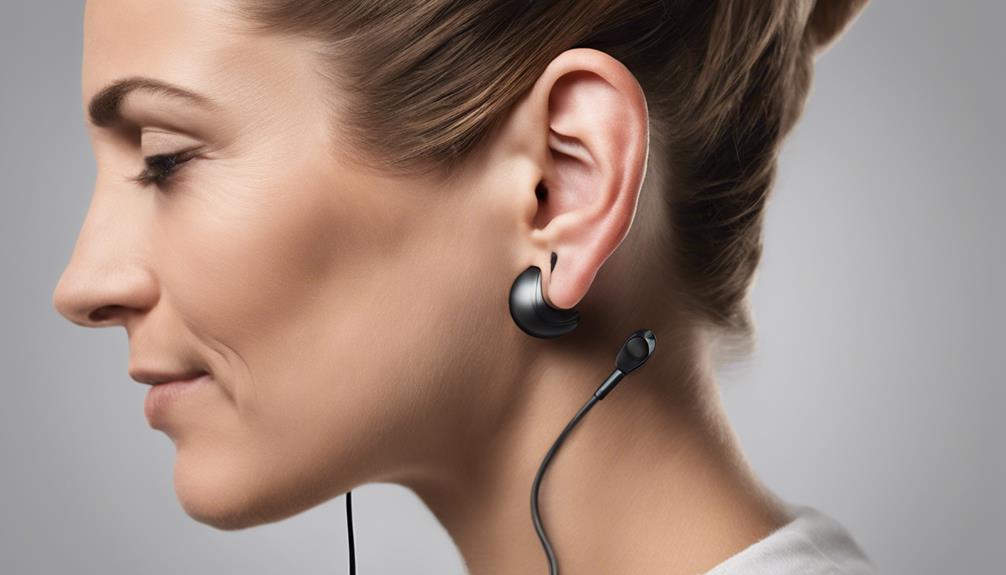Exploring how Medicaid covers cochlear implants reveals a complex system with various eligibility criteria and nuanced differences in coverage.
As we navigate through the steps involved, the intricate process of applying, approval, and post-approval considerations sheds light on the layers of assistance available.
Let's delve deeper into the details of Medicaid's coverage for cochlear implants and how it impacts individuals seeking this vital auditory solution.
Key Takeaways
- Medicaid covers cochlear implant surgery, audiology, and rehabilitation for eligible individuals.
- State-specific policies determine coverage extent, including devices like sound processors.
- Eligibility criteria vary by state, typically covering children with developmental health conditions.
- Approval process involves pre-authorization, medical records review, and specialist evaluations.
Medicaid Coverage for Cochlear Implants
In some states, Medicaid covers cochlear implant surgery, audiology services, rehabilitation, and necessary devices for eligible individuals. Medicaid programs are mandated to provide coverage for cochlear implants for children under 21 years of age. The extent of Medicaid coverage for cochlear implants, including sound processors and related equipment, is contingent upon state-specific policies. While eligibility criteria for Medicaid coverage of cochlear implants can differ across states, children with any health condition that impacts their development are typically included under Medicaid coverage for cochlear implants.
Audiology services play a crucial role in the Medicaid coverage for cochlear implants, as they encompass the assessment, fitting, and ongoing management of the implant and related devices. Rehabilitation services are also an integral part of Medicaid coverage, focusing on the post-implantation care and therapy necessary for the individual to adapt to the cochlear implant successfully. Understanding the nuances of state-specific policies is essential in maximizing the benefits that Medicaid programs offer for individuals seeking cochlear implantation.
Eligibility Criteria for Medicaid Coverage

Eligibility criteria for Medicaid coverage of cochlear implants vary depending on the state's specific guidelines and regulations. State Medicaid programs have specific criteria that individuals must meet in order to qualify for coverage of cochlear implants. Children with health issues that impact their development are typically covered by Medicaid, which often includes coverage for cochlear implants. In some cases, Medicaid may require pre-authorization for cochlear implant surgery to ensure it is a necessary and appropriate treatment.
Below is a table outlining some common criteria for Medicaid coverage of cochlear implants:
| Medicaid Eligibility Criteria | Description |
|---|---|
| Diagnosis of hearing loss | Must have a documented hearing loss diagnosis. |
| Medical necessity | Cochlear implant must be deemed medically necessary. |
| Audiological evaluation | Evaluation by an audiologist is often required. |
| Rehabilitation services | Coverage may include post-implantation rehabilitation services. |
Medicaid coverage for cochlear implants typically encompasses audiology services, rehabilitation services, and the devices themselves, ensuring that individuals have access to comprehensive care to support their hearing needs.
Applying for Medicaid Coverage of Cochlear Implants
When seeking Medicaid coverage for cochlear implants, individuals must ensure they meet the specific eligibility criteria and provide the required documentation for approval.
To apply for Medicaid coverage of cochlear implants:
- Understand State-Specific Guidelines: Familiarize yourself with your state's specific requirements for Medicaid coverage of cochlear implants, as these guidelines can vary significantly.
- Gather Necessary Documentation: Collect all documentation of medical necessity, including audiologist reports, physician recommendations, and any other relevant medical records to support your application.
- Meet Income Requirements: Ensure that your income falls within the Medicaid eligibility limits established by your state, as income requirements can influence your approval for coverage of cochlear implants.
Approval Process for Medicaid Coverage

Navigating the Medicaid approval process for coverage of cochlear implants involves submitting essential medical documentation and recommendations from specialists. The state Medicaid agency typically requires prior authorization before proceeding with cochlear implant surgery. This process entails providing detailed medical records, including audiograms to assess hearing loss severity and speech recognition scores. Additionally, a recommendation from an otolaryngologist or audiologist may be necessary to support the need for a cochlear implant. Furthermore, Medicaid may mandate a trial period with hearing aids to demonstrate the inefficacy of other treatments before approving coverage for cochlear implants. The submitted information is carefully evaluated by the state Medicaid agency to determine if the individual meets the coverage criteria for cochlear implants. Once approved, Medicaid covers the cost of cochlear implant surgery, related services, and essential devices for eligible individuals.
| Approval Process for Medicaid Coverage | ||||
|---|---|---|---|---|
| Step | Requirements | Documentation | Specialists Involved | Outcome |
| Submit Application | Prior authorization | Medical records | Otolaryngologist | Approval for surgery |
| Provide Medical Records | Audiograms | Physician reports | Audiologist | Coverage determination |
| Specialist Evaluation | Speech recognition scores | Test results | Eligibility assessment |
Post-Approval Steps and Considerations
Upon receiving approval for Medicaid coverage of cochlear implants, the next crucial steps involve scheduling the surgery with a qualified surgeon and ensuring all pre-surgery requirements are met.
It's essential to coordinate with the hospital billing department to confirm coverage details and understand any financial responsibilities.
Following the surgery, adherence to post-operative care instructions provided by the healthcare team is vital for optimal recovery and activation of the cochlear implant.
Additionally, scheduling follow-up appointments for programming adjustments and rehabilitation services as needed is important for long-term success.
This comprehensive approach ensures that individuals not only receive the necessary surgery but also continue to benefit from the support and services required for successful adaptation to the cochlear implant.
Frequently Asked Questions
How Much Does a Cochlear Hearing Aid Cost?
Cochlear hearing aid costs can vary significantly, ranging from $5,000 to $100,000 based on factors like brand, model, features, and accessories. Insurance, including Medicaid, can help with these expenses.
Medicaid coverage for cochlear hearing aids depends on state policies and eligibility criteria. Some manufacturers offer financial aid programs for those with limited coverage.
These aids are crucial for hearing-impaired individuals, and assistance programs aim to make them more accessible.
Conclusion
In conclusion, navigating the labyrinthine process of securing Medicaid coverage for cochlear implants can feel like scaling Mount Everest with a toothpick.
However, with perseverance, patience, and a touch of luck, the journey can lead to the life-changing gift of sound for those in need.
Remember, the path may be arduous, but the destination is worth every twist and turn.










